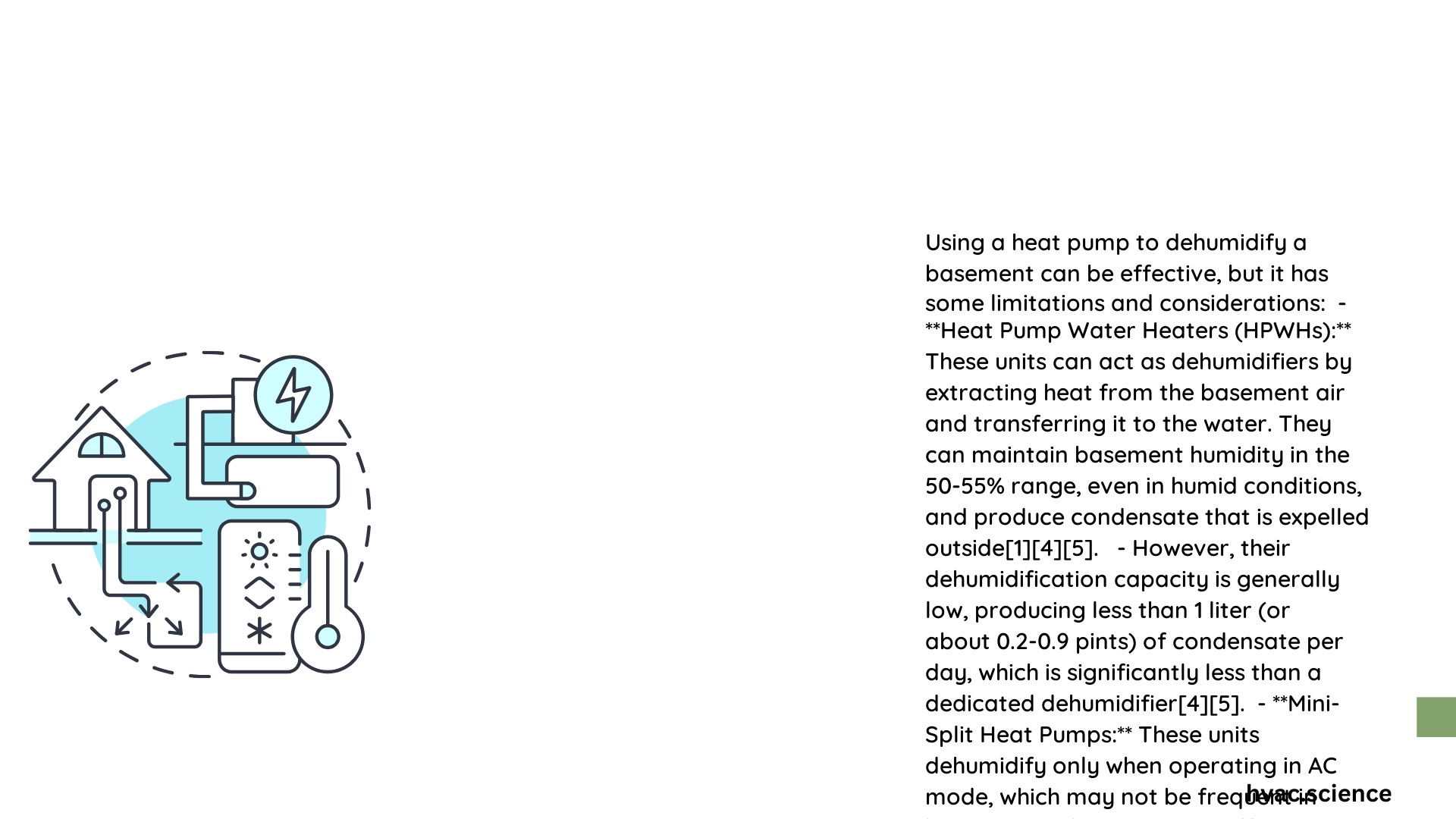Basement moisture can be a persistent challenge for homeowners, causing potential structural damage, mold growth, and unhealthy living conditions. Heat pump technology offers an innovative and energy-efficient solution to dehumidify basements by simultaneously removing excess moisture and generating hot water. This comprehensive approach not only controls humidity levels but also provides significant energy savings compared to traditional dehumidification methods.
What Makes Heat Pumps Effective for Basement Dehumidification?
Heat pumps are unique systems that transfer heat from one location to another while simultaneously removing moisture from the air. In basement environments, they excel at:
- Reducing relative humidity levels
- Preventing mold and mildew growth
- Improving overall air quality
- Generating hot water as a secondary benefit
How Do Heat Pumps Remove Moisture from Basements?
Heat pump water heaters operate through a sophisticated process of moisture extraction:
- Air Intake: The unit draws humid basement air into its system
- Cooling Coils: Moisture condenses on cold coils, separating water from air
- Water Collection: Condensed moisture is collected and drained
- Heated Air Circulation: Dry, slightly warmed air is released back into the space
| Performance Metric | Typical Heat Pump Dehumidification |
|---|---|
| Humidity Reduction | 50-60% relative humidity |
| Energy Efficiency | 2.0-2.5 Energy Factor |
| Daily Moisture Removal | 1-2 gallons |
| Temperature Range | 45-75°F optimal performance |
What Are the Key Benefits of Using Heat Pumps for Basement Dehumidification?
Energy Efficiency
- Lower electricity consumption compared to traditional dehumidifiers
- Dual-purpose functionality (dehumidification + water heating)
- Potential energy cost savings of 50-60%
Moisture Control
- Consistent humidity management
- Prevents structural damage
- Reduces potential for mold and mildew
What Should Homeowners Consider Before Installation?
Critical factors include:
- Basement square footage
- Average humidity levels
- Existing ventilation
- Electrical infrastructure
- Budget for initial investment
How to Maximize Heat Pump Dehumidification Performance?
Recommended strategies:
- Ensure proper unit sizing
- Maintain consistent temperature
- Clean filters regularly
- Check drainage systems
- Monitor humidity levels
What Are Potential Limitations?
Challenges to consider:
– Higher upfront cost
– Requires specific temperature ranges
– May produce slight noise during operation
– Performance varies with environmental conditions
Cost Analysis

| Expense Category | Estimated Range |
|---|---|
| Unit Cost | $1,000 – $3,000 |
| Installation | $500 – $2,000 |
| Annual Operating Cost | $200 – $400 |
| Potential Energy Savings | 50-60% |
Conclusion
Heat pump basement dehumidification represents an advanced, energy-efficient solution for moisture control. By understanding its mechanics, benefits, and considerations, homeowners can make informed decisions about implementing this technology.
